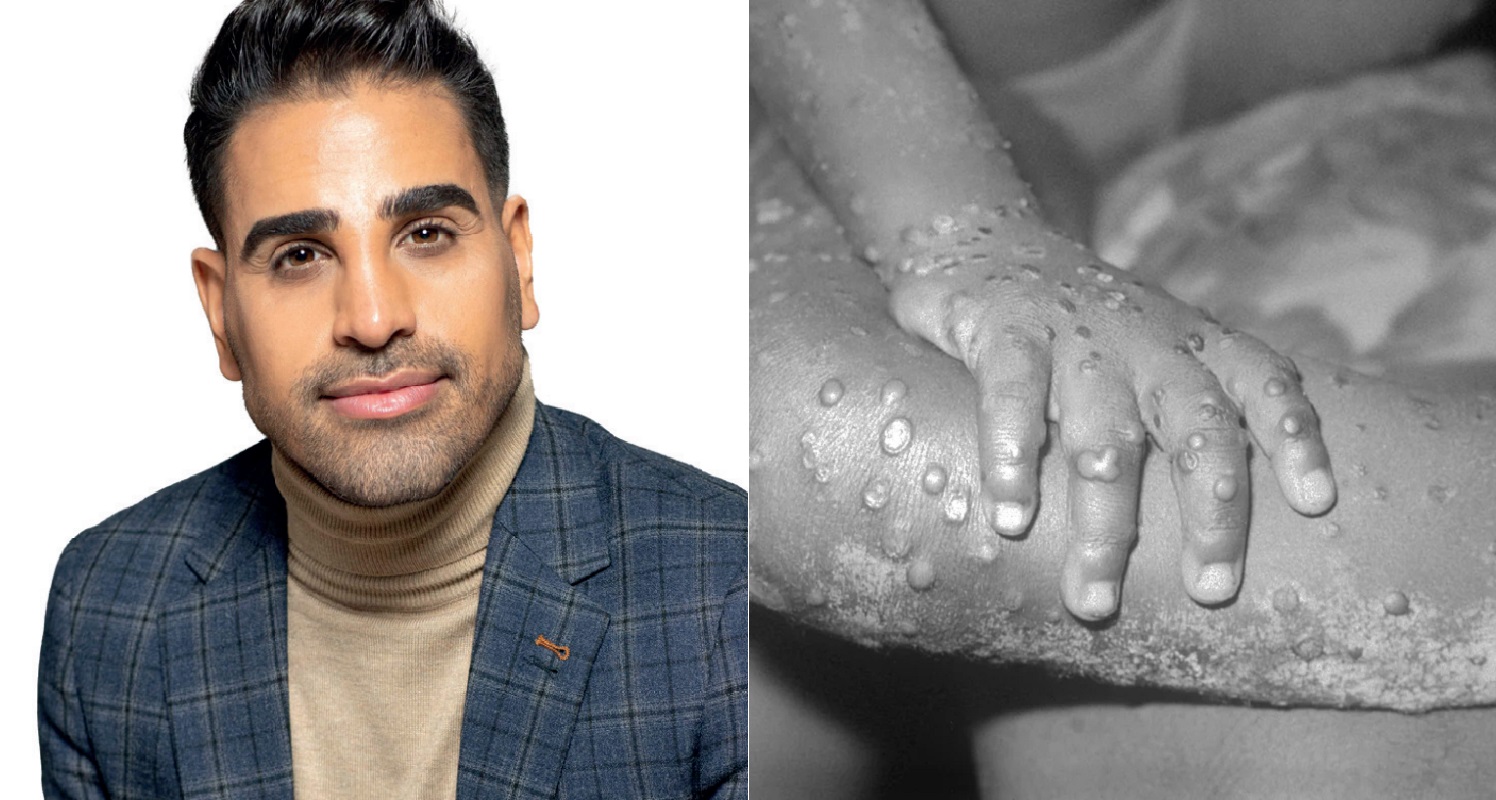Monkeypox is not a ‘gay disease’ – here’s what you need to know
Dr Ranj Singh on the signs, symptoms, and why recent diagnoses appear to be disproportionately among men who have sex with men (MSM).
By Will Stroude

Words: Dr Ranj Singh; Image: Wiki Commons (right)
Just as we get to grips with one global infectious scourge, another one seems to rear its head. Monkeypox has captured the attention of the world, with a lot of worrying speculation and misinformation doing the rounds. So how much of a threat is it, and why is it so concerning for the gay community? Here’s the lowdown on what we know so far…
Despite the apparent alarm, monkeypox is actually nothing new. It was first identified in 1958 and normally exists in animals (e.g. rodents, dogs, squirrels). However, it can spread to humans through close contact. One of the first cases was identified in 1970 in Zaire, Africa.
Since then, it’s been grumbling along in the background with outbreaks mainly in Africa. As it doesn’t usually transmit from person-to-person easily, these outbreaks have been on a relatively localised scale.
However, recently a number of cases have appeared in other countries, such as the UK, US, Spain, Portugal and Canada. What’s worrying is that there doesn’t seem to be any history of travel in those affected, implying that the disease is spreading between humans. Furthermore, a large proportion of those affected are men who have sex with men (MSM).
Could this be because the virus has mutated to a more transmissable version? Well, it’s a possibility, but rapid sequencing of the virus’ genome reveals that it hasn’t really changed since 2018, which would go against this. Only further ongoing research will determine if this is actually the case though.
Why is it affecting MSM so much? We know that it spreads through close contact. It’s quite possible that the introduction of the virus into networks of MSM who may have multiple intimate contacts has allowed more rapid spread. We have to be careful here because this doesn’t mean MSM are at fault at all. And we definitely shouldn’t echo the ridiculously inaccurate hysteria of HIV being a ‘gay disease’: It may just be that MSM networks have incidentally presented the virus with an ideal storm of conditions in which to multiply. So this community should definitely be on increased alert.
What’s far more important is recognising it and seeking medical advice if you are worried (ideally online/by phone in the first instance). Fortunately, the vast majority of infected people will get better by themselves within 2-4 weeks, but they need to be identified and isolated to prevent further spread. The signs and symptoms to look out for include:
- Fever
- Aches and pains
- Tiredness
- Chills
- Swollen glands
- A rash that appears after a few days starting on the face and hands and spreads to the rest of the body, including the genitals. This goes through various stages of appearance: from red spots, to blisters, to scabs (a bit like chicken pox).
You will find many people quoting a fatality rate of 10%, but remember that this is for a specific strain of the virus in a particular part of the world. The figure in other settings with different resources may be very different, and is quite likely to be lower.
The other HUGELY important thing to note is that, despite concerns, this virus is completely different to the coronavirus responsible for COVID. Anyone telling you otherwise has no idea about basic virology. Also, we already have a vaccine that’s around 85% effective against monkeypox – the one we use for smallpox (which has been eradicated a long time ago). And on top of that, we have effective antiviral medications for those who do happen to become extremely unwell.
However, there is one major similarity between monkeypox and COVID. Whilst we work out exactly what the situation is and where it’s going, it’s clear that the biggest challenge with monkeypox is the spread of disinformation and the rise of stigma against certain communities. We have a global population with a heightened attention to infectious diseases, and a significant number of people who are happy to believe conspiracy and want to attribute blame. Let’s please not fall into those traps again.
My advice right now: be sensible, be aware of the signs, and beware the hype.
Anyone with concerns about moneypox is being advised to contact NHS 111 or a sexual health clinic. People should notify clinics ahead of their visit. For government guidance and information on monkeypox, click here.
